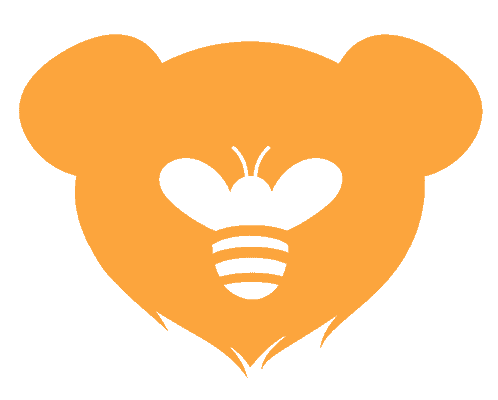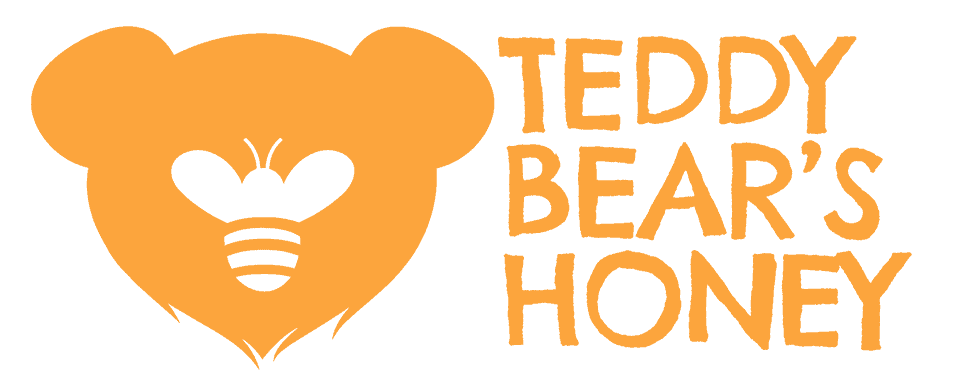Honey is a fantastic natural sweetener, and many parents prefer this option to sugar in their children’s diet. When it comes to giving babies honey, there are a few things that you should find out beforehand. Babies younger than one year old do not have fully developed digestive systems, and there are some types of foods that you should hold off on because of this. The question is whether or not honey is one of these foods.
Parents should refrain from giving their babies under one year any honey. Honey can contain the bacterium Clostridium botulinum spores which can cause infant botulism. The toxin released by infant botulism can cause weakness, muscle paralysis, constipation, and in rare cases, it can be fatal.
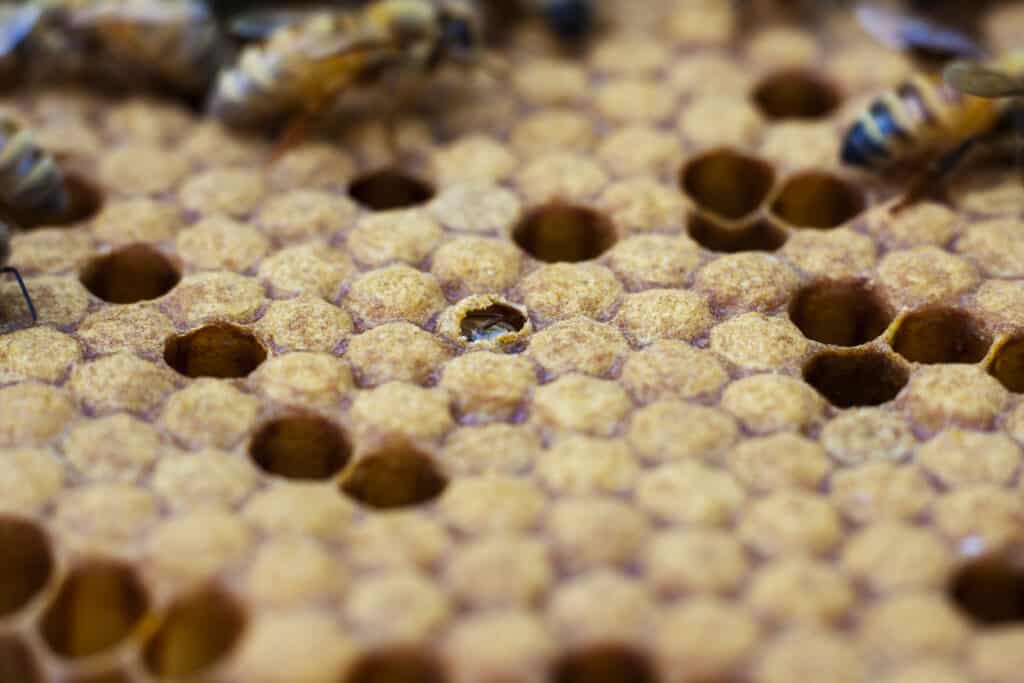
You can get many different kinds of honey worldwide today, and some parents might think that the processed honey they are using is not as risky as raw honey, but this is not the case. As parents or baby caregivers, we need to know the risks involved when we give honey to babies under a year old in our care. We also need to know when we can start to offer honey as a food item, how we should introduce it into the diet, and whether or not your baby or toddler can have an allergic reaction to it.
Honey And Babies Younger Than One Year
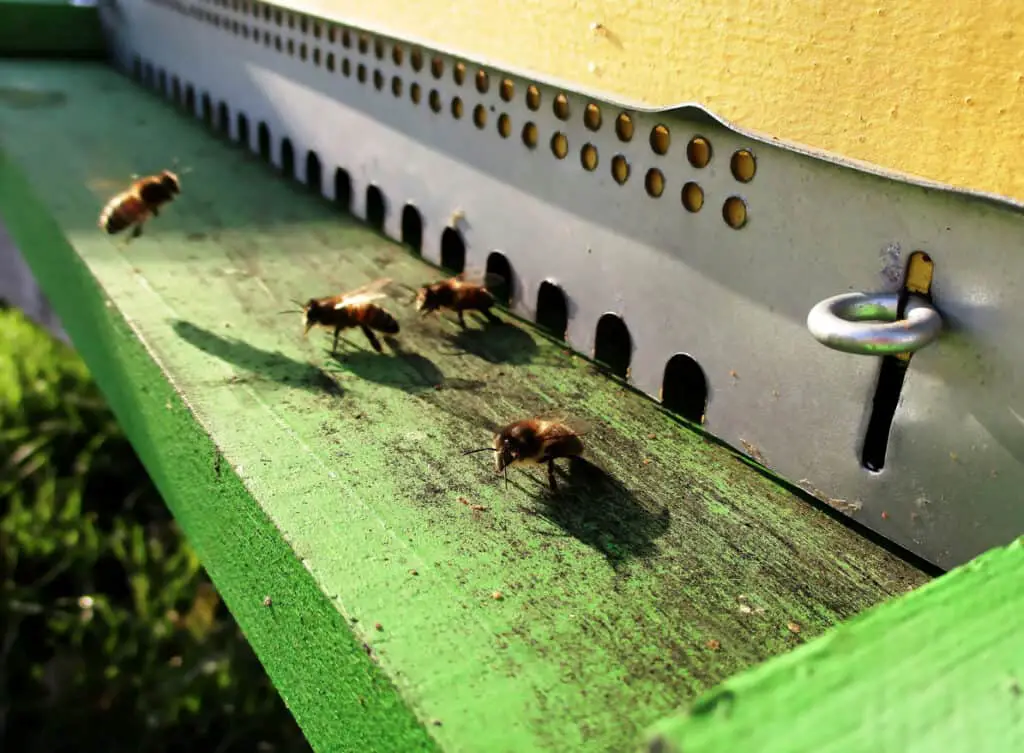
Firstly, it’s best to avoid giving your baby anything but breast milk or formula during the first four months of your baby’s life. After this time, you should slowly introduce solid food and water. Yet there is still a range of foods you should avoid giving your babies before they hit that year mark, and honey is one of them.
One of the reasons you should avoid giving your babies honey is because it is an added sugar and is therefore not very good for them health-wise. You should avoid adding sugary substances to your baby’s diet for as long as possible.
The main reason doctors suggest you refrain from giving your baby honey is that it can cause infant botulism. Honey can contain spores from the bacterium Clostridium botulinum, which is a direct cause of infant botulism in children under one. Babies under 12 months do not have fully developed digestive systems and therefore do not possess the defenses that older children and adults have against this bacteria.
In most cases, the honey you might feed your baby will not contain any of these spores, but in rare cases, it could. Once the spores reach the digestive tract, they start to multiply, producing high levels of the toxin associated with botulism. Luckily, botulism is a documented condition, so there are known signs and symptoms that you can keep your eye out for if your baby ingests some honey by accident.
Signs And Symptoms Of Infant Botulism
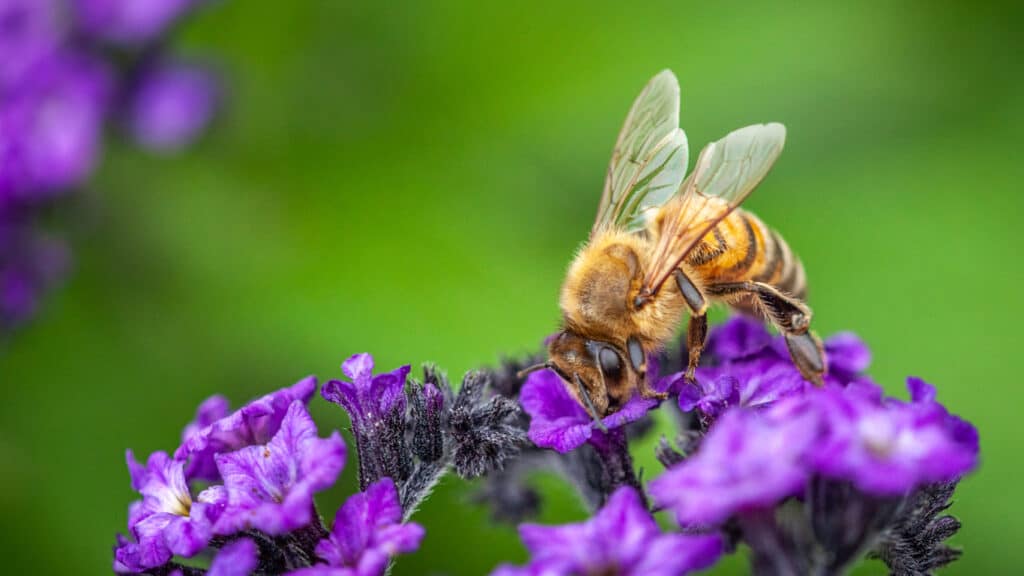
Botulism is a serious but rare condition that affects the body’s nerves. Infant botulism is most common in babies under six months old, with some cases even occurring in babies only a few days old.
Even though most infections appear in younger babies, this does not mean that once your baby has reached six months, it is now safe to give them honey. At six months, they still do not have the digestive-bacterial defenses to fight off an attack from the bacterial spores that cause botulism.
The appearance of botulism symptoms can take hours to days, but constipation is the most common and often the first to appear. Other symptoms include slow feeding, reduced gag reflex, a weak cry, loss of facial expression, trouble swallowing, excessive drooling, breathing problems, and overall weakness or floppiness, especially in the legs, arms, and neck.
In most cases, doctors can quickly treat your baby after receiving a positive diagnosis; luckily, fatality rates are low. Unfortunately, some patients might land up in the ICU being treated with fluids or spending time on ventilators depending on the severity of the infection and how quickly the diagnosis occurred.
Are All Honey Varieties A Risk For Infant Botulism?
You might think your processed honey is safer to eat than other varieties, especially raw kinds, but this is not the case. All honey varieties, including mass-produced, raw, pasteurized, or local honey, are risky because they may be carriers for the Clostridium botulinum bacterium spores. Even small amounts of the spores are enough to infect your baby.
Can You Give Your Baby Cooked Honey?
When it comes to honey being a potential carrier of the bacterium spores that cause botulism, all kind of honey, including that used in cooking, is a risk factor. The optimal thing for you is to try and ensure that you do not give your baby under one year any form of honey, even honey used in baking or cooking. Instead of using honey, choose another type of sweetener to use. Maple syrup is a good alternative and does not pose a risk to your infant.
How Much Honey Will It take To Cause Infant Botulism?
You might think your baby would need to eat a whole spoonful of honey to consume enough spores for it to become a problem. Unfortunately, this is not the case. Even a tiny amount, enough to cover the tip of your baby’s pacifier, can be enough to start an infection. It only takes a couple of the spores to get into the digestive tract as they will multiply once there.
Honey And Babies Younger Than Two Years
After 12 months, the risk of botulism is over as your baby’s digestive tract is mature enough to defend itself against the harmful bacterial spores that cause botulism. Now is the time that many parents decide to start giving their little ones honey to try. Although you might think that honey is a good source of sugar and a healthier option for your baby, it is best to avoid giving it to them in large doses.
Honey is considered an added sugar; therefore, it’s generally best to limit your under two-year-old to small amounts if possible. Even though you might think that it is healthier than white or brown table sugar, honey is still sugar.
All forms of sugar, including added sugar, can increase your baby’s risk of acquiring health issues such as obesity and tooth decay. Doctors have associated too much sugar in a baby’s diet with other health issues such as type 2 diabetes, high cholesterol, heart disease, and high blood pressure.
For this reason, it would be beneficial if you avoid feeding your baby honey between the ages of one to two. During these years, you can try to prevent your baby from consuming too much food or beverages that contain added sugar and instead get them to eat foods that don’t have added sugar. If they do happen to eat honey or try a portion of food that includes it as an ingredient, you don’t need to panic. Your baby will suffer no health risk.
What’s The Best Way To Introduce Honey To Your Baby?
When introducing your baby to a new food, there is a method you can employ for the best and safest results. The optimal way for you to do this would be to add a small amount of honey to a portion of food that your baby is already used to, say their morning oatmeal. After trying honey for the first time, refrain from giving them any new food for at least three to four days. This way, you can keep an eye open for any symptoms of an allergic reaction.
It would be best if you waited until your baby was two before trying them out on honey. Once they have eaten a bit and showed no signs of allergic reaction to it, you can continue giving it to them in small amounts. You might even find that your little one likes their new food, and you can add it in small quantities to a variety of their meals.
Introducing Honey To Your Baby
Introducing new foods can be a fun activity for you as the parents and for your baby. It is a time of exploration, taste discovery, and laughter. But it can also be a time for nerves and worry for the parents.
Will your baby like your offering, or will they turn their noses up and demand something else. To help you introduce honey, we thought we would put together a list of some helpful ideas of where you can add honey into your baby’s diet to aid their taste buds in acclimatizing.
- Mix honey into their morning oatmeal.
- Mix honey into their yogurt.
- Spread some honey onto a piece of toast.
- You can add honey to a homemade smoothie.
- Or you can use honey on pancakes or waffles instead of their regular maple syrup.
You can also opt to use honey instead of table sugar when baking. As it is rather sweet, you only need to use a small amount to produce the same taste effect as regular sugar. For instance, if the recipe requires one cup of sugar, you can opt to replace that sugar with ½ to 2/3 cup of honey. There are, of course, a few things to keep in mind if you do opt to go this route, and that is:
- Keep a close eye out for browning as foods cooked with honey tend to brown quicker.
- You can consider a reduction in your oven temperature by 25°F.
- Trim down the other liquids in your recipe by ¼ cup for every cup of honey that you use.
- Add an extra ¼ tsp baking soda for every cup of honey, which will help reduce acidity.
Can Babies Be Allergic To Honey?
Although rare, there are cases of babies having an allergic reaction after consuming honey, especially after the first time. The thought is that these allergic reactions could be due to small traces of bee pollen in the honey.
You can look for some primary symptoms and indicators of a food allergy. You should look out for any of these signs after your baby has tried a new food for the first time. Some of the symptoms include:
- Itching
- Hives
- Nausea, diarrhea, stomach pain, or vomiting
- Tongue, lip, or skin swelling
- Wheezing
- Trouble breathing
- Throat tightness
- Trouble swallowing
You should contact your doctor immediately if your child displays signs of any of these symptoms. Allergic reactions can be life-threatening if not treated timeously and adequately.
Does Honey Have Any Health Benefits For Your Baby?
Although honey contains some trace elements of nutrients and antioxidants, you would need to consume a large amount of it to get enough of them to be a healthy option. One benefit is that studies have shown that honey can aid in helping to alleviate the symptoms of sore throats and nighttime coughing. It does this by assisting in the thinning out of the mucus that causes issues in your throat.
So if your two-year-old is suffering from the symptoms of a cold, you could try and offer them a teaspoon of honey at night to help them sleep. There have also been some suggestions that you can use honey as a topical cream to help with cuts, scrapes, and itchy bites as it has antibacterial and anti-inflammatory properties.
Conclusion
You should refrain from giving your tiny baby, anywhere up to a year old, honey as it can potentially cause your child to develop infant botulism. Some honey contains Clostridium botulinum, whose spores invade a baby’s digestive tract, multiplying and causing the child to develop infant botulism, which has an array of severe symptoms and, in rare cases, can be fatal.
After your baby has turned one, you can give them honey safely, but it would be better if you held off for another year as honey is considered an added sugar and is not a healthy option for your one to two-year-old. After your baby has turned two, you can happily give them honey in small doses. As long as you remember, honey is a sugar, and you should only eat it sparingly.
References
https://www.whattoexpect.com/first-year/baby-feeding/when-can-babies-eat-honey
https://kidshealth.org/en/parents/honey-botulism.html
https://kidshealth.org/en/parents/botulism.html
https://www.healthline.com/health/parenting/when-can-babies-eat-honey#introducing-honey
https://www.webmd.com/baby/when-can-a-baby-have-honey
https://www.parents.com/baby/feeding/when-can-my-baby-eat-honey/https://www.verywellfamily.com/when-can-my-baby-have-honey-5209033
